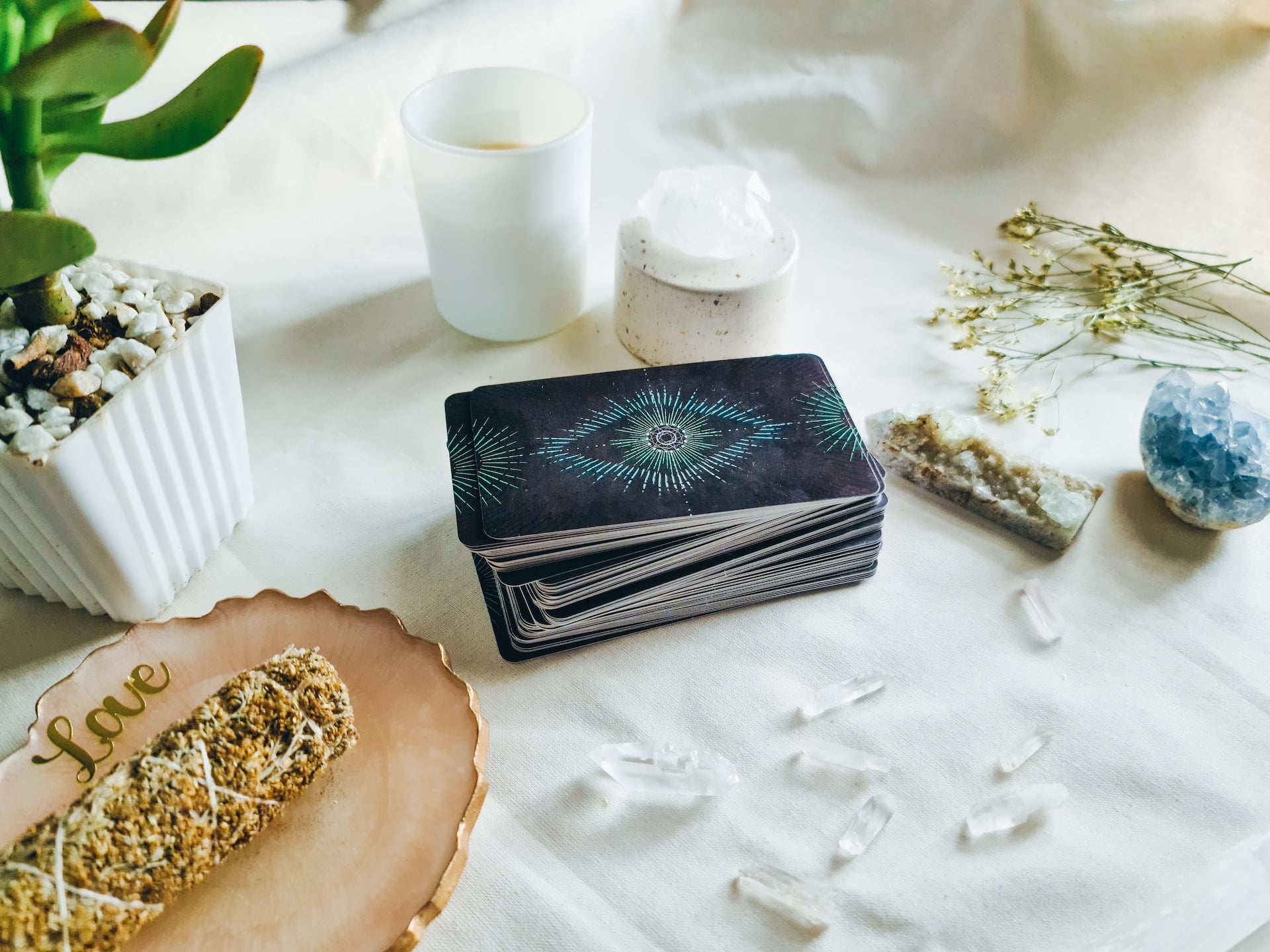The world of tarot cards has long been a source of fascination, mystery, and debate among spiritual seekers and skeptics alike. Some swear by the wisdom tarot cards offer, while others view them as dangerous tools that can negatively impact a person’s life. In recent years, the tarot has experienced a surge in popularity as people increasingly turn to its guidance to navigate the ups and downs of their lives. But do tarot cards have the power to ruin someone’s life, or are they misunderstood tools for personal growth and self-awareness?
Understanding tarot cards is essential to discern their impact on our lives. Tarot decks generally consist of 78 cards, 22 known as the Major Arcana. These cards possess symbolism that represents significant life events or spiritual lessons. The remaining 56 cards are divided into four suits representing different aspects of daily life and human experiences. Tarot reading involves interpreting the cards to guide one’s life path and personal development.
Key Takeaways
- Tarot cards can guide personal growth and self-awareness, but interpretation is crucial.
- Misinterpretation of tarot readings can lead to negative consequences in decision-making and relationships.
- The influence of tarot cards is primarily psychological, ultimately depending on the individual’s beliefs and decisions.

Understanding Tarot Cards
Tarot cards have been used for centuries for self-discovery and understanding the world. A tarot deck consists of 78 cards, with two main groups: the Major Arcana and the Minor Arcana. The Major Arcana contains 22 cards representing life’s significant lessons and experiences, while the Minor Arcana comprises 56 cards representing everyday challenges and situations.
In the world of tarot, each card carries its unique meaning, which can be interpreted through symbols and imagery. When a tarot reading occurs, individuals draw cards from the deck and examine the associations and messages carried by the chosen cards. It is important to note that tarot cards do not hold magical powers and cannot predict a person’s future, but they can offer guidance and insight.
Meaningful coincidences, also known as synchronicities, play a significant role in tarot. The belief that a deeper underlying meaning connects certain events or encounters is central to tarot philosophy. These synchronicities can help individuals better understand their lives and make informed decisions.
As tarot cards are used to explore the self and one’s life, it is essential to approach the process with a confident, knowledgeable, and neutral mindset. Clear interpretations can provide valuable guidance and uncover hidden truths. However, exaggeration or falsification of insights can lead to confusion and misdirection.
In summary, tarot cards serve as tools for introspection and self-discovery, using symbolism and meaningful coincidences to shed light on life’s challenges and experiences. As long as individuals approach tarot readings responsibly and with an open mind, these cards can offer valuable insights without causing harm or disruption.
The Role of Tarot in Providing Guidance
Tarot cards are often sought for guidance and insights into one’s life. They provide a unique means of exploring personal thoughts, feelings, and situations, helping the person gain clarity and understanding. By using symbols and images on the cards, tarot readings offer a different perspective into the inner workings of an individual’s life.
The primary goal of tarot readings is to provide insights and clarity rather than predict the future. Tarot readers interpret the cards’ symbols and are experienced in recognizing patterns and revealing hidden messages. These insights can be invaluable for decision-making processes as individuals receive feedback on different aspects of their lives.
Recognizing that tarot readings are not meant to predict the future with absolute accuracy is essential. They instead serve as a tool for personal reflection and guidance, helping people make informed decisions. Tarot readings can provide a different perspective on various situations, aiding individuals by giving them the insight to make choices confidently.
In summary, tarot cards are crucial in providing guidance and enhancing self-awareness. They don’t predict the future accurately, but they enable people to gain valuable insights and clarity in their lives. This knowledge can be essential in making more informed decisions and navigating life’s challenges with greater confidence.

Tarot Cards as a Tool for Personal Growth
Tarot cards can be a powerful tool for personal growth, promoting self-awareness and mindfulness. They may help individuals explore their spirituality and foster a deeper understanding of their lives. Using tarot cards has been found to improve meditation experiences, ultimately leading to inner peace and harmony.
In the context of personal growth, tarot cards can guide individuals through various aspects of life, including relationships, career, and personal development. By providing insight into various situations, tarot cards help one identify patterns and gain clarity on past, present, and future experiences.
When used to practice mindfulness, tarot cards aid individuals in focusing on the present moment, encouraging deep reflection on their actions and thoughts. This focused attention allows for self-awareness and personal growth, healthily addressing emotions and internal conflict.
It is essential to approach tarot readings with a balanced perspective, understanding that they are a tool rather than a precise predictor of future events. This neutrality fosters self-growth, allowing for exploration and development without becoming overly reliant on tarot as the sole source of guidance.
Through regular practice, tarot can contribute to peace and harmony. By using the cards in conjunction with meditation, individuals establish a deeper connection with their spirituality and can achieve a balanced sense of self. By being open to the insights offered, one can enhance their growth journey and live a more fulfilled life.

Interpretation and Misinterpretation of Tarot Readings
Interpretation plays a significant role in understanding tarot readings. A skilled reader can decipher the meanings behind the cards and their positions, while a novice might misinterpret the messages. This can lead to confusion and possibly negative impacts on one’s life.
A common misinterpretation occurs when readers assign literal meanings to cards rather than exploring the symbolic aspects. For instance, the Death card often causes anxiety as it is mistakenly associated with physical death. The Death card signifies transformation, change, and new beginnings. This card can provide valuable insights into personal growth and development when interpreted correctly.
On the other hand, the Devil card, which represents temptation, addiction, and materialistic desires, is sometimes misinterpreted as a sign of impending doom. In reality, it reminds individuals to be mindful of their choices and resist the allure of harmful habits.
Misinterpretation of tarot readings can also lead to an overemphasis on negative outcomes. Many fear a single negative card can predict catastrophe or ruin their lives. However, tarot readings should be viewed as a tool for self-reflection and growth, not as an immutable prediction of the future. A negative card might suggest that the querent needs to reassess their current situation and adjust to avoid potential pitfalls.
Regardless of the cards drawn, it’s vital to remember that interpretation is subjective. Tarot readers should always approach their readings with an open mind, considering various perspectives and factors influencing the outcome. By doing so, tarot readings will remain a valuable tool for personal growth rather than an omen of doom.
When Tarot Cards Become Detrimental
Tarot cards can be valuable tools for self-reflection and spiritual guidance. However, when used irresponsibly, they can also negatively affect a person’s life. One of the main risks associated with tarot card use is the development of an unhealthy dependency.
Dependency on tarot cards can manifest in different ways; some individuals may become reliant on them for making critical decisions, while others may develop a fear of negative predictions coming true. A person who becomes dependent on tarot readings for guidance may find that they are unable to make decisions or move forward in life without first consulting the cards. This behavior can severely limit personal growth and create a sense of powerlessness.
The constant need for tarot card readings can also lead to addiction, where one feels compelled to consult the cards frequently. A gambler’s mentality might drive this addiction, as people may hope for better or more favorable results with each reading. Additionally, tarot obsession may become evident in individuals who spend excessive time researching and analyzing their readings.
Another issue that arises from an unhealthy relationship with tarot cards is card favoritism. This occurs when a person places greater importance on specific cards or interprets them as biased. Such favoritism can lead to distorted perceptions and a loss of objectivity in understanding the overall message of reading.
It is essential to approach tarot readings with a balanced mindset to avoid these detrimental effects. Recognizing the potential pitfalls and using the cards responsibly can help ensure they remain a positive and beneficial tool.
The Influence of Tarot on Decision Making
Tarot cards can have a notable impact on an individual’s decision-making process. As people seek guidance for their choices and actions, they may look to the Tarot for insights and clarity. However, it is important to remember that tarot cards are merely tools to guide individuals and are not deterministic.
One way tarot cards may influence decision-making is by encouraging thoughtful reflection on potential paths. When someone consults the tarot, the cards often present different options or perspectives. This can help individuals examine their choices and consider consequences before following through with their actions. However, the responsibility lies with the person consulting the cards, as it is ultimately up to them to use their free will in decision-making.
Another aspect of the Tarot’s influence on decision-making is the potential for confirmation bias. This occurs when individuals interpret and favor information in a way that conforms to their preconceptions. While tarot cards can provide valuable guidance, users must be aware of this potential bias and ensure they do not allow it to distort their interpretation.
Finally, the Tarot may affect decision-making by providing a sense of reassurance and validation. When faced with difficult decisions, it’s natural for individuals to seek affirmation and confidence in their choices. The Tarot may offer a sense of security in this regard, but users need to remember that they still bear the responsibility for their own decisions and actions.
In summary, the Tarot can undoubtedly influence decision-making, but it should be employed as a tool for self-reflection and growth rather than a definitive guide. Recognizing that choices are ultimately dictated by individual responsibility and free will ensures a balanced and healthy approach to consulting tarot cards for guidance.
Psychological Aspects of Tarot Cards
Tarot cards offer insights into one’s present and future but can also influence an individual’s mental health and behavior. The impact of tarot cards on mental health varies from person to person, and it can be helpful or harmful, depending on the specific situation and each individual’s mindset.
Individuals with strong intuition may find tarot readings more insightful, as they can easily draw connections between the cards and their life experiences. However, those struggling with mental health issues may be more vulnerable to the influence of tarot cards, as they may interpret the readings negatively. This can reinforce negative thought patterns, causing further distress or anxiety.
The subjective nature of tarot readings is another factor that can affect an individual’s mindset. Different people can interpret the same cards in various ways based on their personal beliefs and experiences. This means that people might perceive the same card reading as positive or negative, depending on their perspective.
Sometimes, tarot cards can be empowering, encouraging self-reflection and promoting mindfulness. For low-confidence individuals, a supportive tarot reading can provide encouragement and a sense of validation. On the other hand, if an individual is susceptible to suggestions, a negative reading can contribute to feelings of vulnerability and uncertainty.
It is crucial to approach tarot readings with an open and mindful attitude, using them as a tool for self-reflection and growth rather than as a definitive guide to one’s life. Setting healthy boundaries and maintaining a balanced perspective can help minimize the negative impact of tarot readings on one’s mental health and overall well-being.

Sign up and get first 3 minutes free plus Exclusive discount
The Effect of Tarot Cards on Relationships and Health
Tarot cards can offer insights and guidance when navigating life’s challenges. However, many people question the impact of tarot on their relationships and health. This section summarizes some of the effects tarot cards could have on an individual’s life in these areas.
In many cases, tarot cards can be a helpful tool for those looking to clarify their relationships, whether romantic or with friends. By prompting users to reflect on their feelings and desires, tarot can lead individuals to make healthier decisions in their love life and friendships. It is essential to remember that tarot cards should not be used to make crucial decisions in these areas but serve as an additional source of information.
While tarot cards can provide guidance, it is important not to rely too heavily on them when it comes to interpersonal relationships. Excessive reliance on tarot to make decisions could strain relationships, leading to misunderstandings and conflicts. Individuals must maintain open communication channels with their loved ones and take ownership of their decisions rather than attributing everything to tarot insights.
As for health, tarot cards can sometimes encourage self-reflection and understanding, which could prove beneficial in maintaining mental wellness. Therapists may occasionally use tarot cards in therapy sessions to facilitate healthier personal narratives and emotional recovery. However, it is important to remember that tarot is not a substitute for professional medical advice.
Tarot cards should not be relied upon as the sole source of support for physical and mental health issues. If an individual is experiencing health concerns or symptoms, they should consult a healthcare professional and follow evidence-based treatment plans. Additionally, tarot cards are not a replacement for therapy sessions with a licensed therapist.
In conclusion, tarot cards can benefit from gaining insights and clarity in relationships and health matters. However, they should not replace professional advice and intervention. By judiciously using tarot cards, individuals may find them helpful in understanding and navigating complex aspects of their lives.
The Significance of Tarot in Forecasting Future
The practice of tarot cards has been prevalent for centuries to gain insights into the future. Those who practice tarot understand the significance of its guidance, which helps individuals navigate life confidently. Tarot readings often serve as a tool to inform decisions and encourage personal growth rather than make exact predictions.
Tarot cards act as a channel for attaining wisdom and understanding in various life aspects, including relationships, career, and personal development. They work spiritually, using symbolism and imagery to stimulate intuition and offer possible outcomes. The tarot reader interprets the cards, connecting the patterns and symbols to the person’s unique situation.
It is essential to recognize that tarot readings are not set-in-stone predictions. Instead, they provide valuable insights that enable individuals to make informed choices and empower them to take control of their lives. The cards help identify potential obstacles or opportunities, allowing people to adjust their paths accordingly.
In fortune-telling, tarot is generally seen as variable and reflective of the individual’s choices. It acknowledges the dynamic nature of life whereby situations and decisions are constantly shifting. This flexibility is a key aspect that distinguishes tarot from other predictive methods.
In conclusion, tarot impacts the future by offering advice and guidance rather than concrete predictions. It encourages personal growth and empowers individuals to take ownership of their choices, providing valuable insights into the complexities of life.
Tarot Cards and Financial Decisions
Tarot cards have been used for centuries for self-reflection, spiritual guidance, and decision-making. Some people may consult tarot cards for insight on their finances and career prospects. It is essential, however, to approach tarot with a balanced perspective and healthy skepticism.
One aspect of using tarot cards for financial decisions is understanding that tarot cards act as a mirror, reflecting one’s thoughts, emotions, and subconscious beliefs. The cards may reveal potential opportunities or challenges in one’s financial and professional life, allowing the individual to make informed choices. However, it is crucial not to rely solely on tarot to dictate financial decisions. Instead, consider it as supplemental information or a catalyst for introspection.
Another essential consideration is that the interpretation of tarot cards is subjective. Readers may have different interpretations, and personal biases can influence their guidance. This subjectivity can lead to inconsistent or inaccurate information, which could create confusion when making financial decisions.
In conclusion, tarot can offer insights and provoke reflection about one’s finances and career, but it should not be the primary driving force behind these decisions. A balanced approach, using intuition, research, and professional advice, will lead to healthier financial and professional decisions in the long run.
Final thoughts on the Impact of Tarot Cards
Tarot cards offer insights and perspectives on an individual’s life. They can bring about change, providing validation and possible solutions to one’s problems. However, moderation and control are key when working with these tools.
The impact of tarot cards on a person’s life highly depends on how they interpret and apply the information gleaned during a reading. Remembering that tarot cards are not a guaranteed solution to all life’s problems is important. They can, however, provide valuable guidance and understanding.
When approached with an open mind and a balanced perspective, tarot cards can become a valuable tool for personal growth and self-discovery. By incorporating the insights from tarot readings into their daily lives, individuals can start to see patterns and gain control over their actions and choices.
In conclusion, tarot cards are powerful tools that have the potential to enrich a person’s life, provided they are used with moderation, control, and a healthy dose of self-awareness.
Frequently Asked Questions
Are tarot cards causing anxiety?
Tarot cards on their own do not cause anxiety. It is the way people interpret and react to the readings that may lead to feelings of anxiety or stress. For some individuals, a tarot reading can provide clarity or reassurance; for others, it may cause worry or overthinking. As a result, it is crucial to approach tarot readings with a healthy and grounded mindset.
Is it bad to read your own tarot?
Reading tarot for oneself is a common practice and is not inherently bad. However, being objective during self-reading can be challenging, and one’s personal biases can affect the interpretation of the cards. One must be self-aware and mindful of personal emotions and expectations when reading for oneself.
Can a tarot reading lead to break-ups?
A tarot reading in itself does not hold the power to cause break-ups. Break-ups usually occur due to incompatibility or issues in a relationship. However, tarot readings can sometimes shed light on these issues, prompting individuals to make decisions or take action. It is essential to remember that the choice to end a relationship ultimately lies with the individual, and the tarot acts only as a tool for reflection.
Can tarot cards have negative consequences?
Tarot cards do not contain inherently negative energy or consequences. Instead, any perceived negativity stems from an individual’s interpretation or reaction to the reading. Maintaining a balanced and open mindset and treating the tarot as a personal growth and self-reflection tool can help mitigate negative consequences.
When should tarot cards be avoided?
Tarot cards should be avoided when the individual is emotionally unstable or when the questions asked are likely to exacerbate existing anxieties or uncertainties. Additionally, relying too heavily on tarot readings may hinder one’s personal growth and hinder the development of healthy decision-making skills.
What are the downsides of tarot readings?
Tarot readings can offer valuable insights but also come with certain downsides. Misinterpretation of cards may lead to unnecessary stress or confusion, and relying too much on readings could result in avoidance of personal responsibility. As with any tool for self-development, it is important to maintain a balanced approach to tarot readings and use them responsibly.




